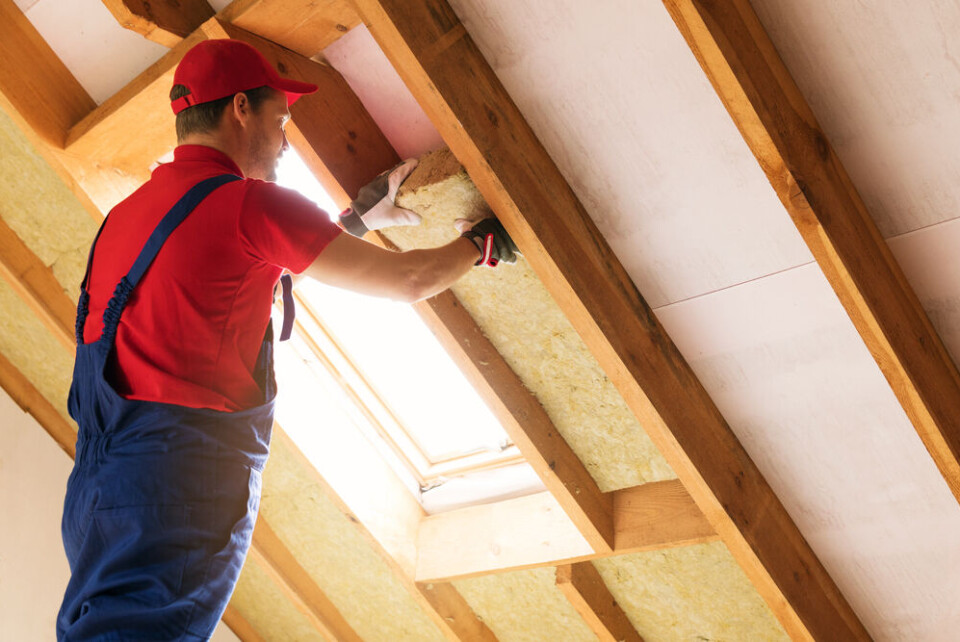-
House cracking threat spreads to new areas in France, putting 12 million properties at risk
Map from environment ministry shows more than half of country at risk
-
France’s home renovations grants relaunch: key points to know
MaPrimeRénov’ is once again available to households of all income levels
-
Did you know? These plants are forbidden in French gardens
Invasive species cannot be sold, planted, or exchanged
Why it is hard to find people to do French eco-renovation grant work
Almost one-fifth of trade companies did not renew their certification for 2024

The number of government-certified tradespeople in France has dropped by almost a fifth in a year, making access to certain renovation works and grants difficult for property owners.
There are 16% fewer Reconnu garant pour l’environnement (RGE) certified workers than at the same point in 2023, according to a study by energy renovation company Heero.
Since 2021, the number has dropped by 23%, and there are now only 55,000 workers with the label.
All types of tradespeople who work on property renovations can receive the label, meaning in theory many hundreds of thousands of workers in France can obtain it.
All departments in France have seen a reduction in the number of workers with the label, but the Île-de-France region has been the most affected.
Paris, Hauts-de-Seine, Seine-Saint-Denis, Val-de-Marne, Val-d’Oise, and Essonne all saw a 20% or more reduction of certified workers in the last 12 months.
This is potentially a knock-on effect from the number of companies working on projects for the 2024 Olympic Games in the city, but is limiting the number of people seeking energy renovation works on their properties in the capital region.
These dwindling numbers will do little to convince people that there will be 250,000 certified tradespeople by 2028, as Economy Minister Bruno le Maire promised last year.
Read more: Help to renovate French home undermined by lack of certified builders
Why is the label so important?
Only workers who have RGE certification can carry out renovations that are partially-funded through the state, such as with the MaPrimeRénov’ scheme or the prime Certificat d'économies d'énergie (CEE) installation bonus.
Property owners who are looking to fund renovations through these schemes must prove the tradespeople they are using are RGE-certified in order to qualify for aid.
You can find a list of certified professionals here.
Read more: How does France’s new home renovation scheme for the over-70s work?
Many workers, particularly from smaller companies, are put off by the price of getting this.
“They no longer see any point in paying for this label,” said Romain Villain, Managing Director of Heero.
It costs roughly €1,000, and can be very complex for workers to obtain, he added, and companies must re-apply for the label every few years.
The certification itself does not provide any practical training – as those applying are already qualified in this regard – but focuses on mostly theoretical information on eco-friendly renovations.
Workers who are RGE accredited can carry out state-funded renovation projects, widening the pool of available jobs, however they have to cut their quotas “sometimes by 15%...to get closer to the amount of aid granted to their customers,” Mr Villain added.
For its part, the government says it is looking into both widening the number of eligible properties and renovation types under the MaPrimeRénov scheme – providing more work for certified companies – and making the application process easier.
The latter would require tighter regulations on the companies’ side regarding fraud, which may not sweeten the deal enough to create an uptick of applications.
Read more: Tips to avoid home renovation scams in France
Almost 18,000 RGE certifications are set to expire at the end of 2024, meaning unless these changes are seen in a positive light, the number of companies who can provide state-funded renovations will fall even more.
Related articles
Firm proposes funding renovation of French property for a share of it
What aid is available to install home solar panels in France in 2024?
























